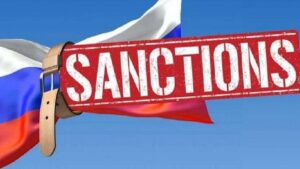
The United States may further expand sanctions against Russia, U.S. Deputy National Security Adviser for International Economics Daleep Singh said in an interview with CBS News.
“We can broaden our sanctions. So – take the measures, take the sanctions we’ve already applied, apply them in more targets. Apply them to more sectors. More banks, more sectors that we haven’t touched,” Singh said.
According to him, the sanctions may affect “the commanding heights of the Russian economy.” “It’s mostly about oil and gas, but there are other sectors too,” he said.
Speaking about the possibility of lifting sanctions against Russia, Singh stressed that “we’re nowhere near that point.”
He believes that “the first thing he has to do is to stop – a reckless and barbaric attack on the civilians of Ukraine. That’s not happening.”
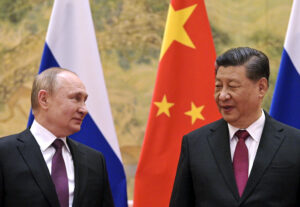
Washington hopes that China will exert the necessary influence on the Russian Federation in connection with the events in Ukraine, U.S. Secretary of State Antony Blinken said on Thursday.
“We believe China in particular has a responsibility to use its influence with President Putin and to defend the international rules and principles that it professes to support,” he said.
At the same time, Blinken recalled that the events in Ukraine will be one of the topics of a telephone conversation scheduled for Friday between U.S. President Joe Biden and Chinese President Xi Jinping.
“President Biden will be speaking to President Xi tomorrow and will make clear that China will bear responsibility for any actions it takes to support Russia’s aggression, and we will not hesitate to impose costs,” Blinken said.
Later, White House spokeswoman Jen Psaki said that the conversation between Biden and Xi Jinping would clarify China’s attitude towards the situation in Ukraine.
“This is an opportunity for President Biden to assess where President Xi stands,” she said.
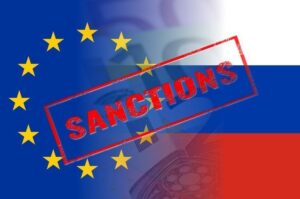
The approved fourth package of sanctions against Russia over the Ukraine situation was published in the Official Journal of the European Union and entered into force on Tuesday.
“This Decision shall enter into force on the date of its publication in the Official Journal of the European Union,” the journal said.
As previously reported, renewed EU sanctions on Russia include a ban on investment in Russia’s energy sector, but exceptions are made for the peaceful nuclear industry and transportation of energy resources to the EU.

The UK denies Russia and Belarus access to Most Favored Nation tariff for hundreds of their exports, imposes a 35% import duty on a number of Russian goods, including vodka, and, same as the European Union, bans exports of luxury goods to Russia, the British government said in a statement on Tuesday.
“The UK denies Russia and Belarus access to Most Favored Nation tariff for hundreds of their exports, depriving both nations key benefits of WTO membership,” the statement said.
Same as the EU, London bans “exports of luxury goods to Russia alongside its G7 allies,” the statement said. The ban applies to vehicles, clothes and art.
The British government also “published an initial list of goods worth GBP 900 million – including vodka – which will now face an additional 35 percent tariff, on top of current tariffs,” the statement said.
BANS, EXPORT, LUXURY GOODS, RUSSIA, UK
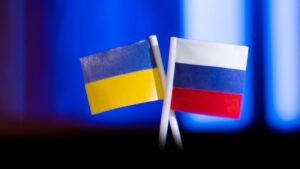
The delegations of Ukraine and the aggressor country resumed negotiations after a technical pause taken a day earlier, Ukrayinska Pravda writes, citing a member of the delegation, head of the Servant of the People faction in the Verkhovna Rada David Arakhamia.
“Negotiations are already underway,” Arakhamia said in a comment to the publication on Tuesday.
At the same time, members of the Ukrainian delegation have so far refrained from making any other comments.
As reported, on March 14, a technical pause was taken in the negotiations between the Ukrainian and Russian delegations on ending the war for additional work in working subgroups and clarification of individual definitions. Later, President of Ukraine Volodymyr Zelensky said that the Ukrainian delegation worked well, and that the negotiations themselves would continue on March 15.
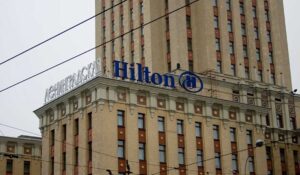
Accor, operator of the Novotel and Ibis brands; Hilton; and Hyatt will not be opening any new hotels in Russia, and they are suspending all partnerships with Russian companies, though they will continue to operate existing hotels, the hotel chains said in their respective statements.
“The French owner of the Novotel and Ibis hotel chains said that it has suspended all planned openings and developments in Russia and any partnerships with Russian companies, though it will continue to operate its more than 50 hotels in the country in order to support its 3,500 Russian employees,” the Financial Times wrote.
Accor was the first international hotel chain to announce a halt, followed by Hilton, operator of the LXR Hotels & Resorts, Waldorf Astoria, Hilton brands and others, and Hyatt. Neither Marriott nor IHG has issued a statement regarding the matter.
“We have now taken the decision to suspend our development activities and any new investment in Russia, and the decision is effective immediately,” the Hyatt hotel chain posted on its official news site.
Hyatt also notes that it will continue to monitor the situation in Russia, while complying with the directives of the U.S. government, as it hopes for a resolution to the crisis.
The Hilton hotel chain said late on Wednesday that it had closed its corporate office in Moscow and would suspend construction of hotels in Russia. The company said in a statement that it would also continue to monitor the situation in Russia.
Accor CEO Sebastien Bazin had previously canceled a meeting scheduled for this week with Russian President Vladimir Putin. Accor’s plans for 2022 had included the opening of five new hotels in Russia. Overall, there are 50 hotels open in the country, with 21 of them operating in Moscow.
The online booking services of Airbnb and Booking.com have also ceased operations in Russia.
The Radisson hotel chain has stated that it would remain in Russia. “All Radisson Hotel Group hotels in Russia will continue to operate. We are closely monitoring the situation in the region, we care about the well-being of all guests and team members, and continue to adhere to all instructions,” the company said in a statement.